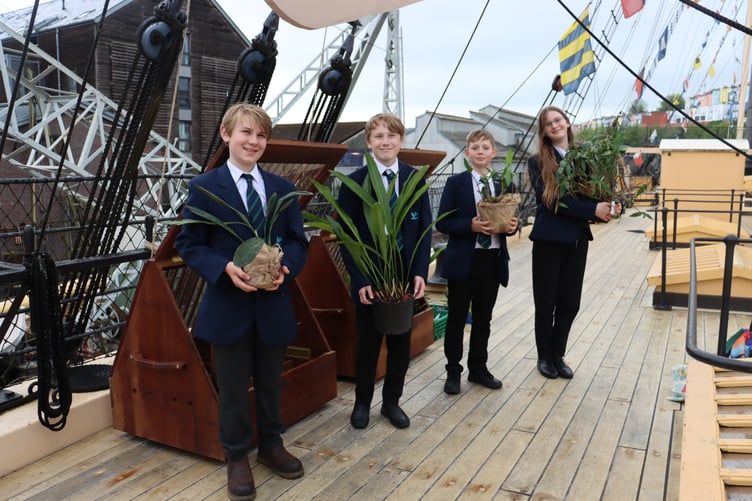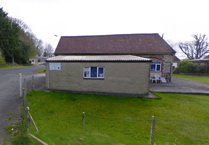A group of Year 7 students from Writhlington School has planted precious orchids into specialised terrariums on board the SS Great Britain, bringing their expertise to new living exhibits set to launch at the Bristol visitor attraction.
The ship, known as ‘the world’s first great ocean liner’, sailed around the world 32 times, travelling more than 1,000,000 miles at sea.
In the Victorian era, the ship transported rare and valuable orchids across the ocean in Wardian Cases, and the species planted by Writhlington School students echo those carried by the ship.
Wardian Cases revolutionised long-distance plant transport. Each sealed case created its own microclimate, allowing flora to survive despite only being watered once during a two-month crossing. By enabling the global migration of plants, the SS Great Britain connected key botanists, nurserymen and ‘plant hunters’ from across the world.
On outbound trips to Australia, the cases carried roses, rhododendrons, and even the invasive bramble to people who had emigrated to Australia and hoped to recreate their English gardens and hedgerows.
On return journeys, the ship transported coveted Australian orchids, with some selling for as much as £300 – the equivalent of £25,000 in today’s money.
Writhlington School is known for its expertise in orchid propagation and growth. The Writhlington School Orchid Project has been running for more than 30 years, and students from Writhlington School care for more than 240 square metres of orchids. The project now boasts the third largest collection of orchids in the country.
Simon Antwis who heads up the Orchid Project and is Head of Biology at Writhlington School, said: “It’s been fantastic to have our students grow and plant up orchids in the Wardian case here on the SS Great Britain. Our orchids are propagated from seed and grown organically without chemicals, and are watered with rainwater, really echoing the Victorian approach.
“We’ve selected Dendrobium kingianum and Dendrobium delicatum among the species planted up, originating from Australia and that appeared on the SS Great Britain’s cargo lists. It’s tremendous for our students to be part of recreating such a pivotal moment in botanical history when living plants were travelling between continents for the first time.”
Iona Keen, head of interpretation at Brunel’s SS Great Britain, said: “Bringing together the Writhlington School Orchid Project and the horticultural history of the SS Great Britain is a tremendous honour.
“It is remarkable that the students have been able to plant the same varieties of orchid today that would have travelled on board in the 1860s. The Wardian case is a testament to how significant steamships were in transporting living plants between continents for the first time.”
The public will be able to view the orchids planted by Writhlington School from July 22 when all six Wardian cases will be completed and displayed at the visitor attraction as permanent new exhibits. The new visitor experience delves into how living plants were transported across continents for the first time over 160 years ago.

.jpeg?width=209&height=140&crop=209:145,smart&quality=75)



Comments
This article has no comments yet. Be the first to leave a comment.